An international census of wintering Dalmatian pelicans on the Balkan Peninsula took place in late November and mid-December. The purpose of the census is to collect data on the number and distribution of endangered Dalmatian pelicans in the study area. The study was conducted in two stages. A census was made at the end of November in the Western Balkans – Western Greece, Albania, and Montenegro. In the period December 10-12, wetlands in Bulgaria and Romania were visited. The activity is organized within the initiative “Pelican Way of LIFE”.
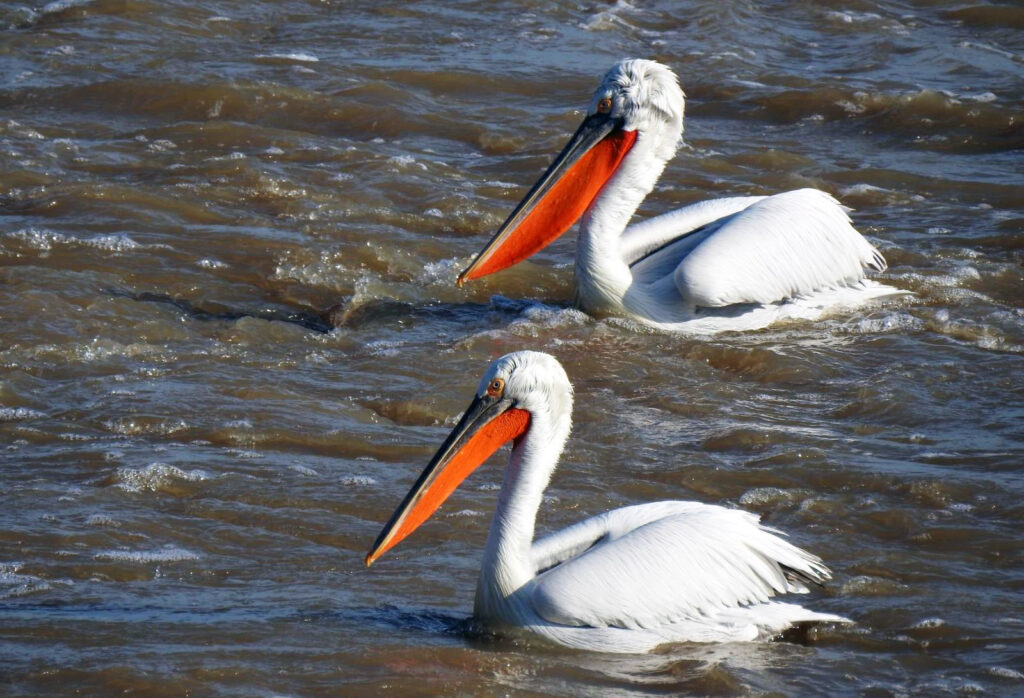
Teams from the Bulgarian Society for the Protection of Birds (BSPB) also joined the international initiative. They visited the wetlands of the greatest importance for the wintering Dalmatian pelicans in the country – the Danube River, Burgas Lakes, Ovcharitsa Dam, Rozov Kladenets, Studen Kladenets, Varna Lake, and others.
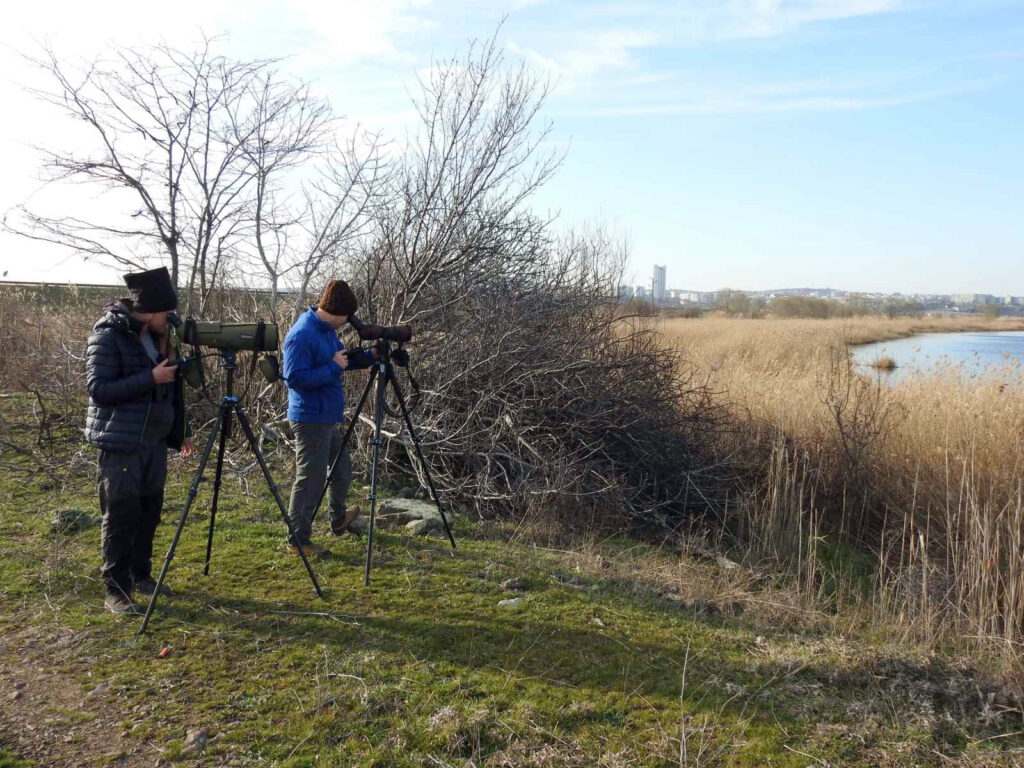
A total of 1469 Dalmatian and 48 Great white pelicans were counted in Bulgaria. Most Dalmatian pelicans were observed in the area of Atanasovsko Lake near the city of Burgas – 1103 individuals, along the Danube River between the town of Tutrakan and the village of Popina – 132 individuals, and in the Rozov Kladenets dam – 93 ind. The team also found Great white pelicans – 48 ind. in the Lake Burgas.
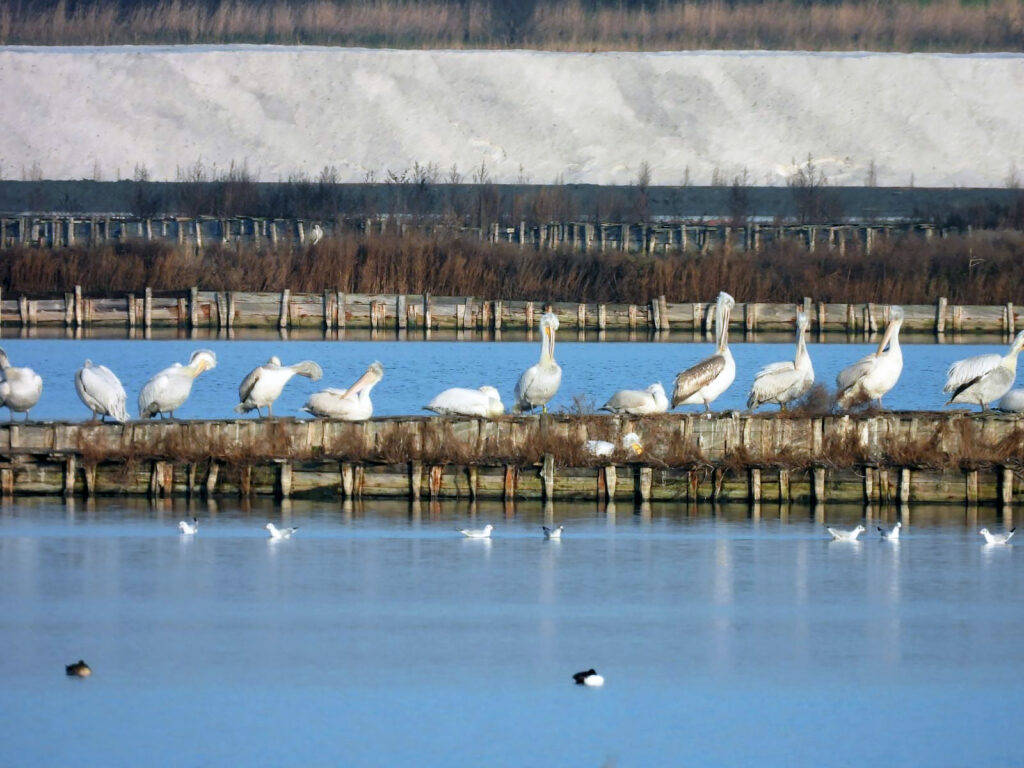
The collected data will contribute to the better knowledge of the species biology and implementation of conservation activities for the Dalmatian Pelican in Southeast Europe. Cross-border cooperation is key to the conservation of this endangered species.
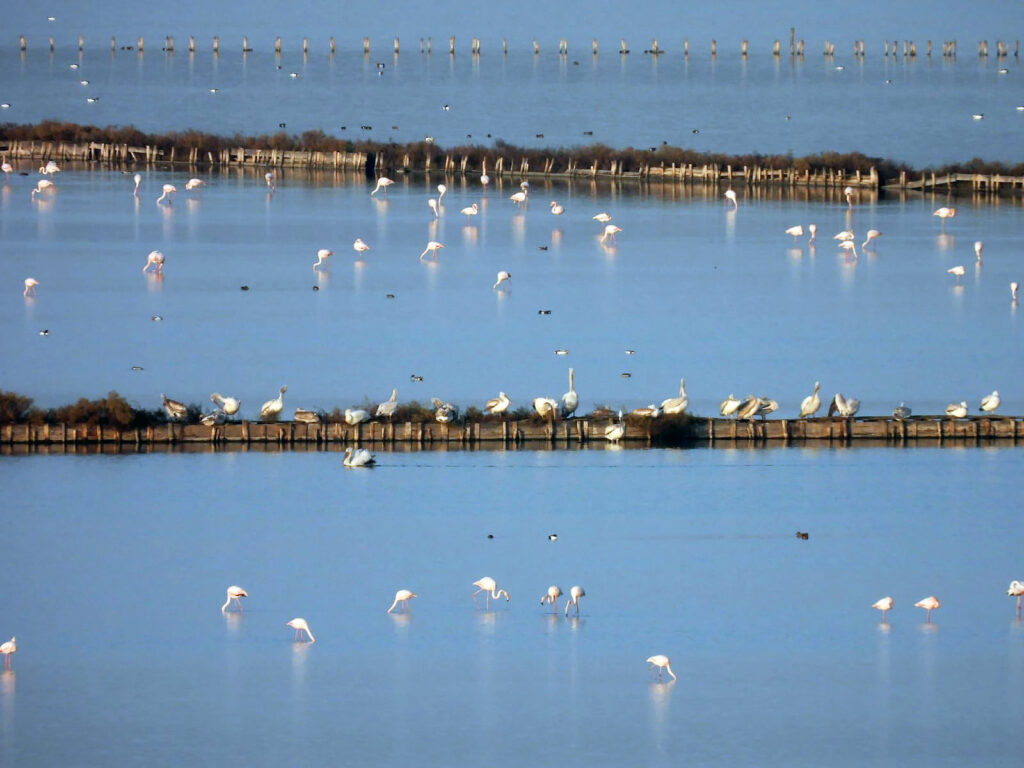
The Dalmatian pelican acts as an ambassador for a rich and interconnected wetland system in Europe. As an iconic indicator species, supporting the comeback of the Dalmatian pelican can indirectly help to restore vast swathes of wetland, lake, and marshy habitat that is likely to have a positive ripple effect on a multitude of other species.
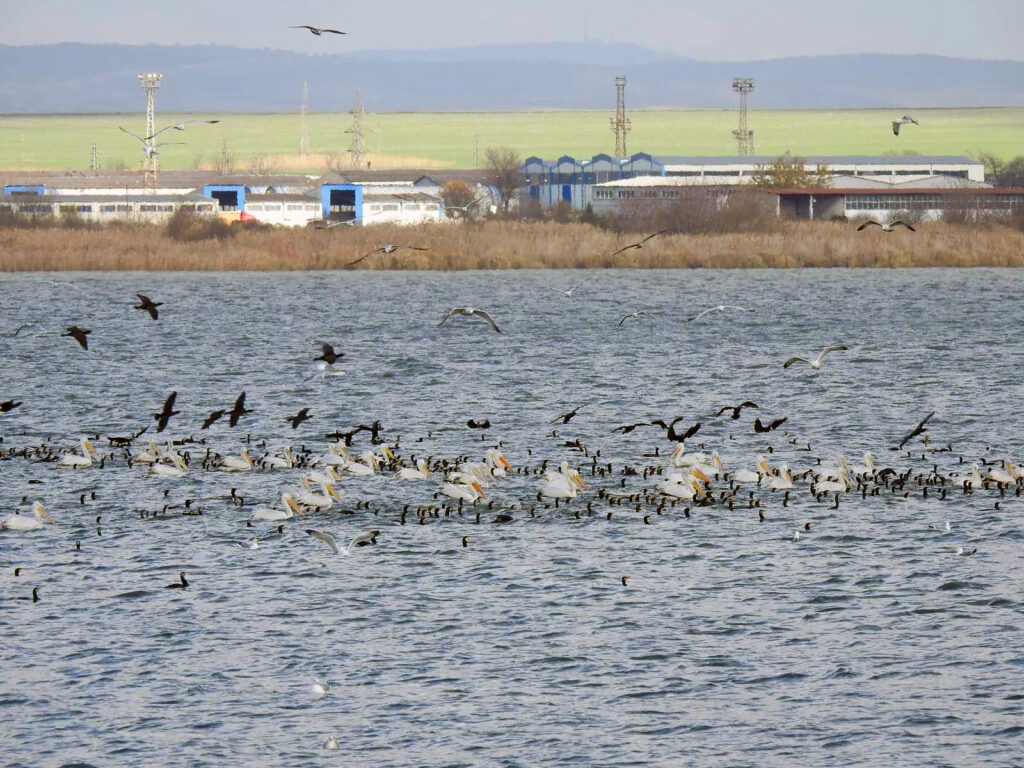
The actions for protecting the Dalmatian pelican are carried out within the project “Pelican Way of LIFE” (LIFE18/NAT/NL/000716), funded by the LIFE Programme of the European Union and with the assistance for the actions in Bulgaria of the Whitlеy Fund for Nature.